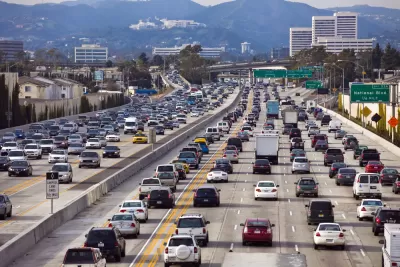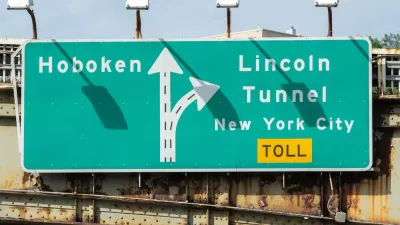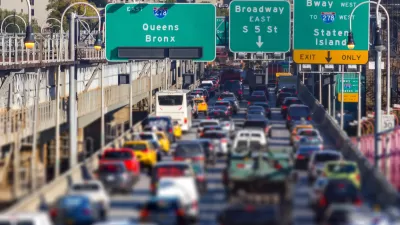On average, women spend longer in traffic than men—perhaps because of the gendered division of labor that still exists in many households.

In Pacific Standard, contributor Tristan Bridges reflects on traffic research suggesting that women make up the majority of congestion—and why.
Women may tend to leave for work closer to peak hours, but work seems not to be the driver of their time stuck in traffic.
When automobiles were first marketed for household use, they were targeted to married women, who were tasked with completing errands throughout the day while their husbands were at work.
Still today, most car trips are made for errands—and a majority of those errands are undertaken by women:
It’s a portion of the "second shift," women's disproportionate contribution to the division of labor inside the household even when they are working outside of the household as well.
Relatedly or not, women are more likely than men to combine multiple errands into one trip. (As Bridges notes, "Traffic experts call this 'trip chaining,' but the rest of us call it multi-tasking.")
FULL STORY: Contrary to Stereotypes, Women Lose More Time in Traffic Than Men

Maui's Vacation Rental Debate Turns Ugly
Verbal attacks, misinformation campaigns and fistfights plague a high-stakes debate to convert thousands of vacation rentals into long-term housing.

Planetizen Federal Action Tracker
A weekly monitor of how Trump’s orders and actions are impacting planners and planning in America.

Chicago’s Ghost Rails
Just beneath the surface of the modern city lie the remnants of its expansive early 20th-century streetcar system.

Bend, Oregon Zoning Reforms Prioritize Small-Scale Housing
The city altered its zoning code to allow multi-family housing and eliminated parking mandates citywide.

Amtrak Cutting Jobs, Funding to High-Speed Rail
The agency plans to cut 10 percent of its workforce and has confirmed it will not fund new high-speed rail projects.

LA Denies Basic Services to Unhoused Residents
The city has repeatedly failed to respond to requests for trash pickup at encampment sites, and eliminated a program that provided mobile showers and toilets.
Urban Design for Planners 1: Software Tools
This six-course series explores essential urban design concepts using open source software and equips planners with the tools they need to participate fully in the urban design process.
Planning for Universal Design
Learn the tools for implementing Universal Design in planning regulations.
planning NEXT
Appalachian Highlands Housing Partners
Mpact (founded as Rail~Volution)
City of Camden Redevelopment Agency
City of Astoria
City of Portland
City of Laramie





























